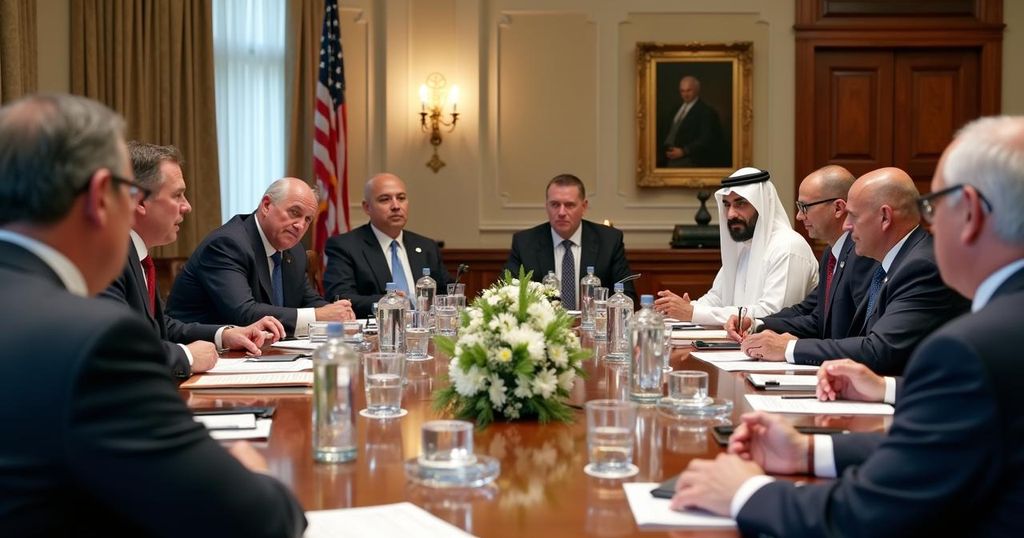Gulf States Urge U.S. Intervention to Protect Oil Assets Amid Israeli-Iranian Tensions
Saudi Arabia, the UAE, and Qatar are lobbying the U.S. to prevent an Israeli attack on Iran amid rising tensions. Iranian officials seek Gulf support to de-escalate potential conflict as they warn of the safety of oil facilities being at risk. The escalation of military actions could disrupt international energy supplies, underscoring the need for urgent diplomatic efforts.
Recent developments indicate that Saudi Arabia, the UAE, and Qatar are actively lobbying the United States to prevent an Israeli strike on Iran, as they perceive an escalating risk of conflict in the region. Iranian Foreign Minister Abbas Araghchi has been making diplomatic efforts to garner support from neighboring Gulf states in an attempt to reduce tensions exacerbated by potential military actions from Israel. Sources from the region have disclosed concerns that Israeli military actions could extend beyond Iran to impact Gulf Arab oil infrastructure, prompting these nations to deny air access to Israel, which Iran has interpreted as an essential move for regional stability. Tehran reiterated this sentiment, warning Riyadh that any cooperation with Israel could jeopardize the safety of Saudi oil facilities. Compounding the situation, Israeli officials have suggested that a substantial military response targeting Iranian military installations and intelligence structures is imminent. Such a military engagement could dramatically disrupt global energy supplies and adversely affect the international economy, illustrating the urgent need for diplomatic intervention to avert a broader conflict.
The geopolitical landscape surrounding the Gulf States is significantly affected by the tension between Iran and Israel, particularly in the context of nuclear proliferation and regional security. Many Gulf nations, including Saudi Arabia, the UAE, and Qatar, maintain a precarious balance in their foreign relations, navigating between their national security interests and the economic implications of potential military engagements. The interrelations of these states with both the United States and Iran set the stage for complex diplomatic dynamics, especially as Iran seeks to solidify its alliances amid threats of military action. The potential ramifications of such conflict on global oil supplies highlight the critical intersection of geopolitics and energy markets.
In conclusion, the ongoing lobbying efforts by Saudi Arabia, the UAE, and Qatar reflect deep-seated concerns regarding Israeli military activities against Iran and the implications for Gulf oil security. The possibility of conflict not only poses risks to regional stability but also threatens to disrupt global energy supplies, necessitating a concerted diplomatic approach to manage tensions and avert a crisis that could have far-reaching economic consequences.
Original Source: oilprice.com




Post Comment